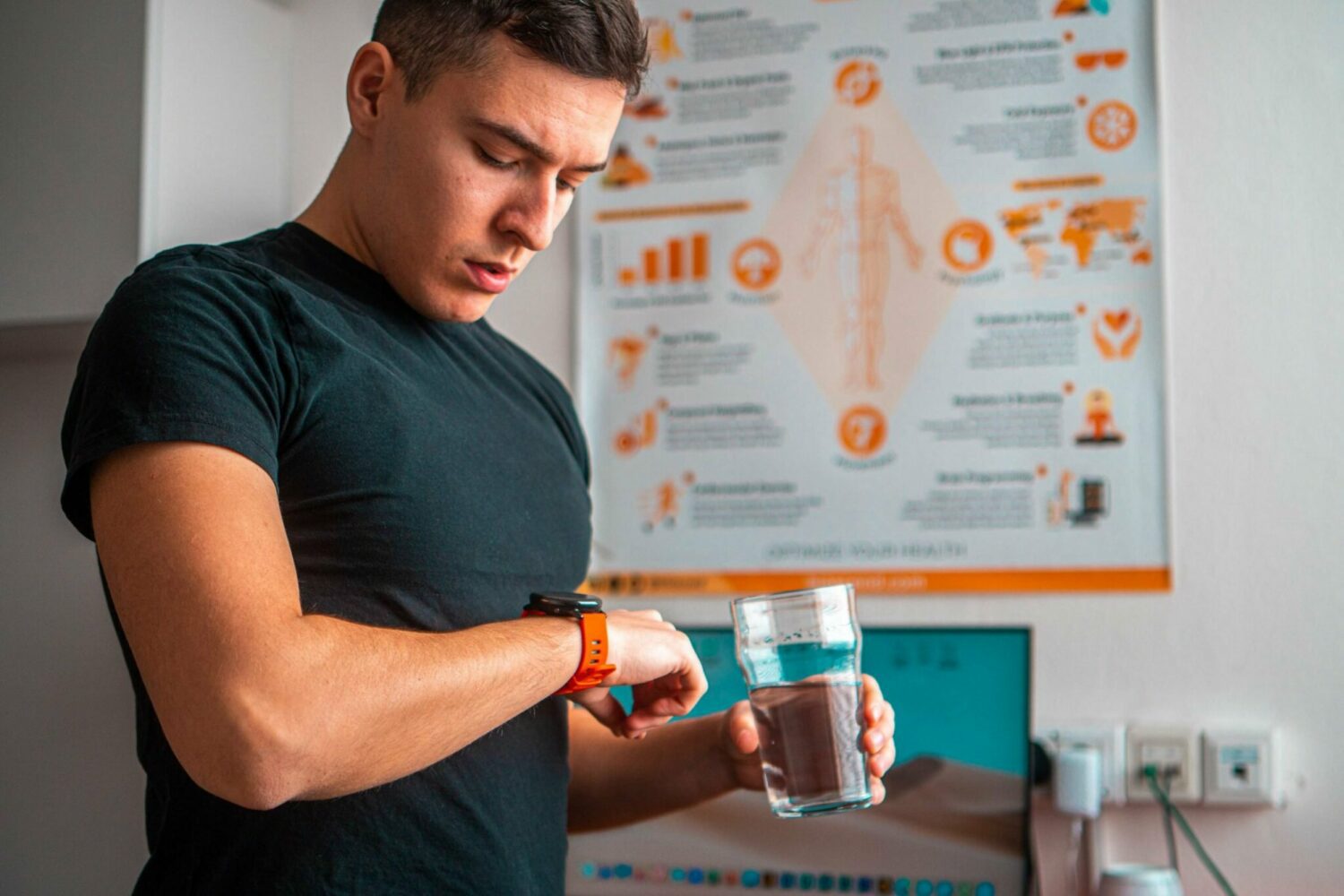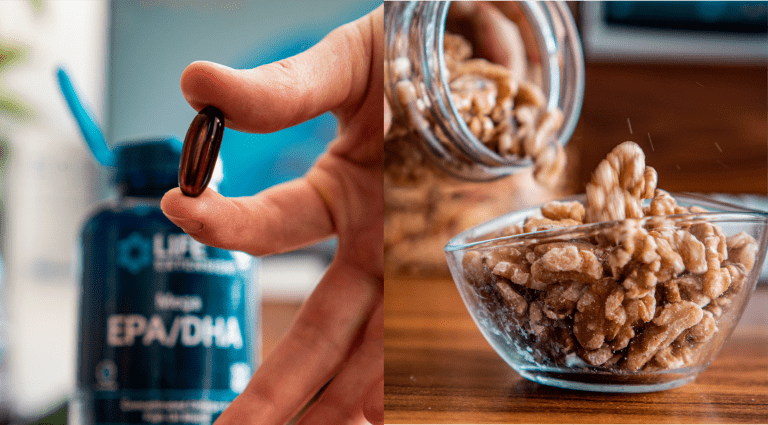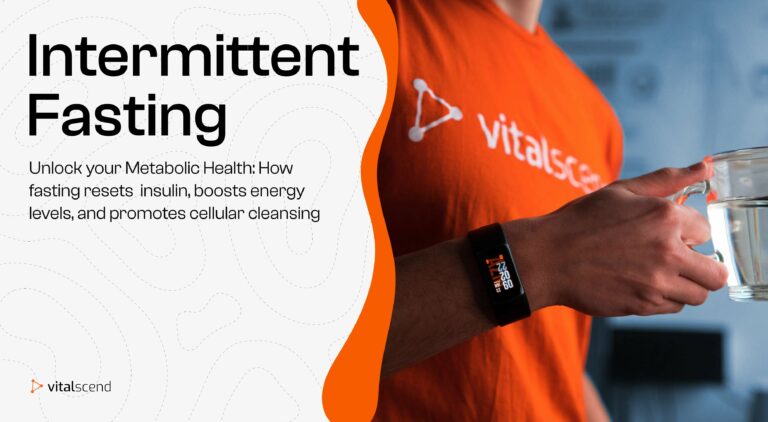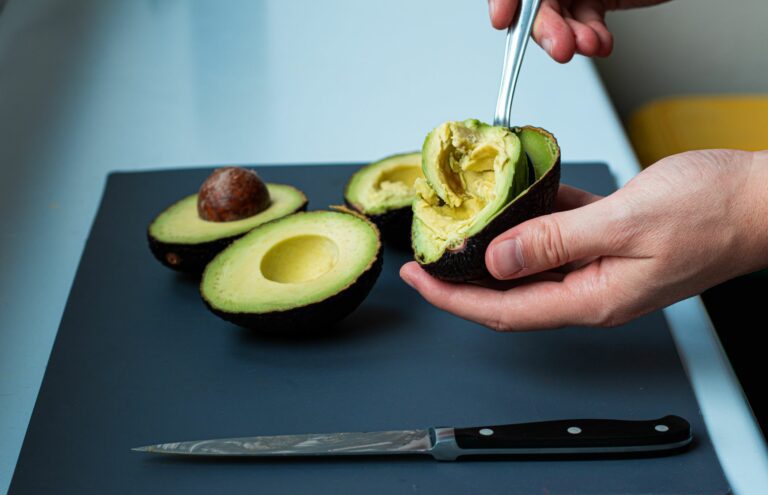What is Autophagy and Cellular Cleansing? Fasting, Detox And Regeneration
Wonder what is autophagy? Look no further. You’ve heard intermittent fasting stimulates autophagy, right? It aids in detox, regeneration, weight loss, and anti-aging.. blah, blah. To find what autophagy really is, how it works, how to induce autophagy, and its detoxing and cellular cleansing benefits, keep on reading.
What is Autophagy
Autophagy is a self-preservation or self-eating method by which the body removes dysfunctional cells. Autophagy helps us recover, regenerate and replace damaged structures in the cells, working in a way as internal recycling.
It allows our body to clear itself of toxins and metals. It internally targets and replaces the misshaped proteins, dysfunctional cells, and old and damaged tissues that we don’t use anymore. It is a catabolic process that creates space for better, newer, functional cells.
Autophagy is one of the primal mechanisms by which our bodies can sustain survival. It may aid in fighting numerous diseases like cancer, obesity, cardiovascular, metabolic, and neurodegenerative diseases, viral infections, and lower inflammation. (1) (2) (3)
Definition: Autophagy is a cellular process that involves the degradation of dysfunctional cells, damaged organelles, and misshaped proteins to maintain healthy cellular balance.

The Adaptation Mechanism
We are genetically wired to seek survival. Anytime we stress our bodies with certain stimuli, they tend to get better at protecting themselves (you) from it. That’s why lifting weights makes you grow muscles, cold exposure induces brown fat creation, and running shreds fat off your frame. Thicker muscles will lift better, more brown fat will aid in thermoregulation, less fat will result in higher running efficiency, etc.
This is exactly how autophagy works. To sustain our body alive it needs to perform a series of reactions, from hormone secretion, energy metabolism, cognitive effort, etc. With all the effort we put in, all the stress we go through and many of the foods we eat cause inflammation in our body. This creates free radicals in the body, increasing oxidative stress and damaging our DNA. With it comes elevated inflammation, which if chronic, is the origin of many diseases.
Autophagy as an adaptation mechanism works to reset your body, and perform cellular cleansing and internal detox. It reduces pathogens, protects heart cells and neurons, and makes your body more effective at sustaining survival.
Autophagy History and Origin (Primal Mechanism)
Autophagy is a well-known biological mechanism first described back in the 1960s. It is one of the rapidly developing and studied mechanisms for its potential in inflammation reduction and disease prevention.
The word itself means self-eating. Auto means “self”, while phagein means “to eat”. It is a natural recycling process using lysosomes for degradation.
Although autophagy was an active field way back, in the 1990s the spectacular experiment of Yoshinori Ohsumi brought it to life. He won the Nobel Prize for discovering the fundamental importance and underlying mechanisms of autophagy, gene mutation, and adaptation response. (4)
How does Autophagy work In Our Bodies?
Autophagy works by creating vesicles with double membranes, known as autophagosomes. These autophagosomes carry, what we call “dysfunctional proteins” to the lysosomes where they’re broken down. (5)
This degradation makes sure you remove unused, dysfunctional, or misshaped cell components. With no autophagy, or dysregulated, weaker or limited autophagy our bodies will age faster, have more oxidative stress, and higher inflammation which manifests in disease development.
Autophagy: How Fasting, Detox, and Longevity Are Related
The way we live can have a significant impact on our health and longevity. The stressors we expose our bodies to, the foods we eat (duel we provide), and the way we sleep all affect longevity.
- Stressors are needed stimuli that evoke adaptation. After exercise, inflammation increases, which is completely normal. It signals our body to adapt to new stimuli, to change, and to become more resilient.
- When we constantly eat high-carbohydrate diets especially high in refined sugars, we speed up aging. There’s chronic elevation of oxidative stress and inflammation.
- Taking some time to off of food, so-called fasting, allows our body to shift to a catabolic state of autophagy, where it eats dysfunctional cell components.
- Research shows that fasting and calorie restriction are some of the most potent stimulators of autophagy. (6)
- In numerous studies, caloric restriction and fasting have been shown to have many potent benefits in promoting longevity. Different metabolic and biological effects of fasting have shown the potential to support healthy function and promote longevity. (7)
- Fasting and caloric restriction has been found to down-regulate gene expression associated with or involved in oxidative stress and oxidative damage. (8)
This effect mainly comes from its ability to lower chronic inflammation and restore hormonal balance and sensitivity to a degree more favorable for a healthy and less acidic environment.
Biohack
One of the best ways to induce autophagy is intermittent or periodic fasting. Picking a 16:8 fasting routine or an extended 2-3 day fast can induce autophagy, exerting many benefits like reducing inflammation, flushing out toxins, and cellular cleansing.
How to Induce Autophagy?
- Fasting. The most famous method of inducing autophagy is clearly, fasting. Periodic or intermittent fasting were both shown to be effective, but it seems like the window between 17-48h is where most autophagy benefits take place.
- Keto Diet. another powerful way to induce autophagy is to adapt to using fats for fuel, or practicing the keto diet in other words (eat that avocado! In other words). The main reason autophagy is induced isn’t just caloric restriction, but sugar exclusion too. Autophagy can be stimulated by eating fats, it’s called sugar-fasting.
- Coffee. Yumm, that good old coffee, who doesn’t love it? Seems like caffeinated coffee can induce liver, muscle tissue, and heart autophagy.
- Foods, compounds, and phytonutrients. There is research that some compounds and phytonutrients found in turmeric, cinnamon, garlic, extra virgin olive oil, ginger, elderberries, Chaga, and reishi mushroom may be effective in inducing autophagy.
- Exercise. Both high-intensity exercise and longer, continual activity were shown to exert autophagy-related benefits like reduced inflammation. Partially, this is due to the better utilization of oxygen and building better resilience to physical stress.
Where does autophagy occur in the cell?
Autophagy happens in the cytoplasm of the cell. Organelles known as autophagosomes mediate the process, where they “trap” dysfunctional proteins (or other components) and with the help of lysosomes, degrade it.
Will tea or coffee break autophagy?
No, not really. Complete autophagy should be done in a zero-calorie state, so unsweetened tea or coffee won’t break it. It is important that it is unsweetened, and zero-calorie. Coffee is also known to induce autophagy in some ways.
Will sugars or fats break autophagy?
Sugars will definitely break autophagy. To some degree, autophagy may still be present within the ketogenic diets where you mainly eat fat, in some people. Undoubtedly, some of the metabolic effects of reducing sugar and inducing autophagy will be present with high fat diets, if carbs are kept very low. This is called ketosis, of sugar fasting, there are similar effects on insulin secretion.
How Long To Fast For Autophagy?
Autophagy is activated at around 16-18 hours after the fasting period had begun. Fasting for 16 hours only, can touch (or get close to) autophagy. Staying in a fasted state for longer can have additional benefits, however, this doesn’t mean more is always better.
You can check the excellent work of Dr Mindy Pelz for the chart on how long to fast for specific benefits. From 16-72 hours fasting is known to exert powerful effects, each at its own stage.
We’ll cover it briefly:
- The first 13-15 hours the secretion of growth hormone increases, we burn more fats for fuel, and have other anti-aging and neuroprotective benefits
- The 16-18 hour is the autophagy-stimulating hour for more metabolically flexible people, where cellular repair, detox, and removal of dysfunctional proteins begin to take place.
- 24 hours into your fast is the average duration where autophagy kick-starts into first gear. Benefits like GABA secretion, autoimmune healing, and intestinal cell reboot take place.
- 36 hours later, we burn more glucose, flush additional toxins out, experience fat loss, and increase dopamine secretion.
- 48 hours into the fast, you get angry and unhappy, yep, you heard that right. This is where Autophagy peaks for many, as HGH skyrockets up 500% while dopamine reset takes place.
Disclaimer: Fasting for too long can put us in a state of nutrient deficiency and malnutrition, so you don’t want to overdo it. Make sure you consult a doctor before trying a different diet or longer fasting protocol, to stay safe.
How do you measure autophagy?
Although there isn’t a funky-techy device that’ll correctly measure your autophagy, it doesn’t hurt to know how it is done. Autophagy is measured by measuring the level of autophagosomes in the body. While the results may be pretty complicated or hard to interpret, at least it’s measurable in mice (to some degree). (9)
Can I drink tea or coffee during autophagy?
The short answer is yes. The tough answer is, unsweetened, sweetheart. Drinking tea or coffee actually contains compounds that can stimulate autophagy. Both caffeinated and decaffeinated coffee seems to effectively induce autophagy in mice and inhibit mTORC1. (10)
Green tea can effectively stimulate autophagy as well, with other potent anti-photo aging, neuroprotective, and stress resistance benefits. Many people aren’t familiar with the HL-60, PI3 kinase types of names, so we’ll leave the link to the study for you aficionados out there, if you want to check the physiological pathways for yourself. (11)
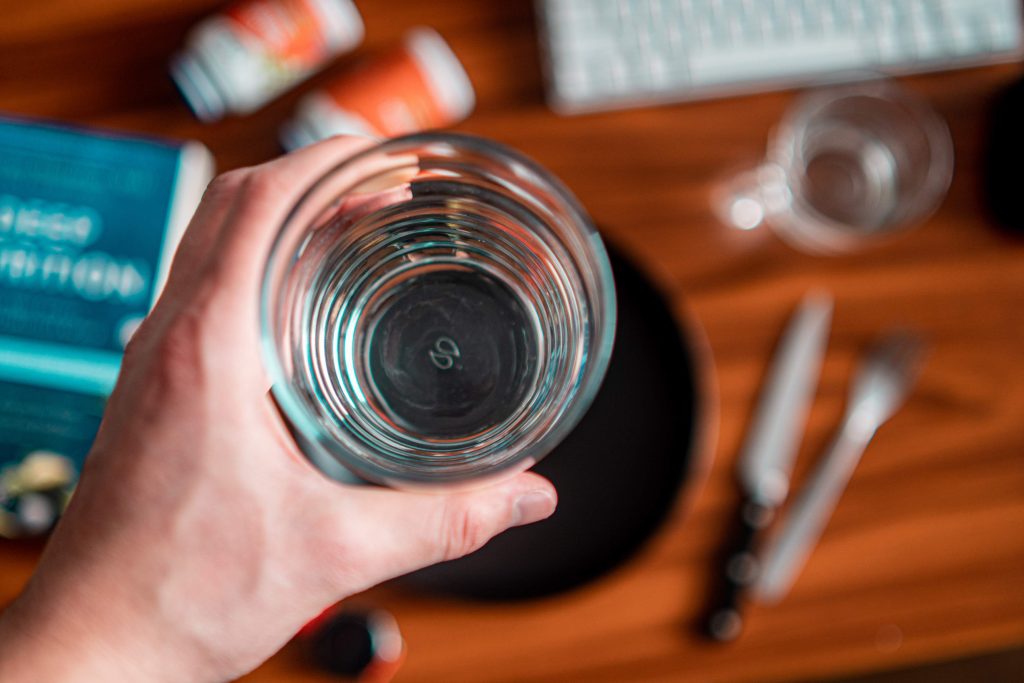
Benefits of Autophagy
As we’ve seen, autophagy comes with many potential benefits. Some of these, are interrelated, some of these are synergistic and many of them, come due to their anti-inflammatory effect.
1. May Reduce Inflammation and Oxidative stress
As we’ve seen the main superpower of autophagy is reducing inflammation. Since excess food intake, especially of foods like processed fats and refined sugars leads to inflammation, it’s logical to think food abstinence will act anti-inflammatory.
Research shows that autophagy has a profound effect on the way inflammatory cells develop and survive, as well as their level in the blood. (12)
As a complex process of cellular homeostasis, autophagy still needs solid evidence on inflammation. However, it seems that autophagy can act as a negative feedback mechanism and control inflammatory responses, showing its potential anti-inflammatory properties. (13)
2. Potential Neuroprotection and Neurogenesis
Using your brain will require some effort. Anytime we learn, talk, think or whatever we do, just staying alive requires our brains to work. These efforts, without enough brain-recovery time (sleep) can lead to a build-up of different components like amyloid plaque in the brain linked to Alzheimer’s and Parkinson’s disease.
Autophagy has been shown to degrade these dysfunctional or misshaped proteins in the brain, leading to lower neural inflammation and potential protection from neurodegenerative diseases. (14)
Dysfunction of autophagy is shown to contribute to the development of Alzheimer’s disease because the ability to degrade or reduce amyloid-beta plaque is reduced. (15) This means autophagy may help with the removal of pathogens and protein aggregates.
3. Balance of Sex Hormones
While the physiological pathway of how autophagy can balance and stimulate sex hormones may be a bit complicated, the general overview is that it works. Autophagy stimulates the so-called primal instinct for survival, which enhances the production of sexual hormones.
Autophagy is reportedly, very active in the Leydig cells, the main testosterone-producing factory. Autophagy can affect testosterone levels by supporting cholesterol uptake, important for testosterone production. (16)
Autophagy is known to balance and support sex hormone secretion in females as well. Some of these effects are due to reduced toxicity and inflammation. It is a known cellular mechanism for hormonal repair, and autophagy is active around women’s ovaries as well.
4. May Improve Insulin Sensitivity
Eating too much sugar is speeding up the aging process. Excessive carbohydrate consumption takes a toll on our body, increases oxidative stress, and is associated with diabetes and obesity development. Clearing that out of the way, improving insulin sensitivity can improve the way we transport sugar and secrete insulin.
It seems like autophagy can be pretty effective in restoring our capacity to properly stimulate and secrete insulin. In the model of this study, autophagy was shown effective in improving insulin sensitivity. It is important to note that intermittent or acute autophagy would work best, to avoid insulin secretion problems or metabolism dysregulation. (17)
If the terms exocyst function and adiponectin secretion sound complicated, it’s because they are. Just note that these might be some of the ways autophagy can improve insulin sensitivity. (18)
5. Cancer Protection
It is no surprise that lowering inflammation and oxidative stress may aid in cancer protection.
While normal cells use nutrients and oxygen to produce energy (ATP) through mitochondrial respiration, cancer cells have a damaged respiration mechanism, which makes them dysfunctional. They strive on glucose, hence why reducing glucose may allow the body to fight cancer.
- Autophagy is known as a double-edged sword in this regard. Research shows its ability to act in both ways, suppressing and promoting tumor growth. Autophagy is also linked to programmed cell death, which may suppress tumor growth. (19)
- Periodic fasting, but not chronic, which induces autophagy has shown potential for disease prevention, delaying aging, and stimulating stem cell-based regeneration. Fasting has also been linked to lower inflammation which may lower cancer incidence and reduce the risk of some cancers. (20) (21)
However, the data on this topic is controversial, and most research is done on animals. Future research with larger, well-designed randomized clinical trials is needed to develop a better perspective on the relationship between fasting, autophagy, and cancer.
6. Regeneration and Recovery
If you’ve ever heard autophagy and fasting increase HGH, it’s because they do. An important thing to understand is that when you think of HGH, you think of muscle anabolism. Won’t work that way, unfortunately.
Autophagy is a primarily catabolic process, breaking down tissue. Degrading these dysfunctional components and misshaped proteins can create more place for newer, more resilient and functional cells.
Fasting stimulates autophagy. Autophagy stimulates human growth hormone, Yes, and the numbers are pretty impressive. It is a self-regulating mechanism that seeks survival. A 5-Day fast may run your HGH up by 300%, while longer 26-day fasting can skyrocket HGH by a whopping 1250%. However, such long-duration fasts can have negative effects leading to nutrient deficiency and constant catabolism. (22)
It seems that periodic fasting, in a way of 16:8 hours, can get you close enough to autophagy, so that if you’d consistently fast for such time, the extra HGH may aid in fat loss, recovery, and muscle growth. To get the benefits from fasting and autophagy, you’d want to put your body in the catabolic state just enough, not too much. And 16:8 hour fasting seems quite reasonable and practical.
7. Anti aging and Longevity
If you peel a banana and let it sit, what happens? Yap, turns brown. It’s called oxidation, a normal process that happens within our bodies as we age. With age, our ability to recover and regenerate slumps down. This is where fasting can help, by inducing autophagy.
- Short-term fasting can have a profound cardiometabolic effect and reduce inflammation. It was shown to lower CRP or C-reactive protein, one of the main inflammatory markers. (23) (24)
- Restricting caloric intake or fasting can promote longevity, mainly by reducing oxidative stress. IF dieting is a better, more practical long-term alternative that acts in a similar way. (25)
- As shown in Frontiers in Cell and Developmental Biology, autophagy declines with age, and so does our longevity, and ability to anti-age and regenerate. Overexpression of autophagy genes was linked to increased lifespan and reduced build-up of toxic protein aggregates. (26)
Think of all the anti-inflammatory properties, the ability to reduce amyloid plaque, remove dysfunctional cells etc. It is no surprise autophagy can promote longevity.
It seems that the synergistic effect of all previous benefits shown above can lead to an improved ability to respond and adapt to stimuli, making us more resilient, and consequentially increasing our lifespan. We don’t even have to mention that fighting oxidative stress helps us age slower, or do we?
Fun Fact
Oxidative stress causes DNA damage, which results in aging. Also, high oxidative stress relates to high inflammation. Fasting and caloric restriction can reduce inflammation and oxidative stress, resulting in increased lifespan.
Conclusion
- Autophagy is self-preservation or self-eating mechanism by which the body removes dysfunctional cells. Autophagy helps us recover, regenerate and replace damaged structures in the cells, working in a way as internal recycling.
- Autophagy is best induced by fasting, and at each state, it may provide different benefits that range from improving alertness, neuroprotection, and regeneration up to reduced inflammation, reduced disease risk and obesity, and consequentially, anti-aging and longevity-enhancing effect.
Frequently Asked Questions
Why does autophagy happen?
We are genetically wired to survive. The body will eat itself until it is able to produce energy to sustain basic function and survival. Luckily, in modern time we do not starve, matter of fact we overeat. When we stop eating, the body must continue producing energy. Even if that means breaking down muscle, bone or other vital tissues.
What foods to eat for autophagy?
Specific foods known to stimulate autophagy include turmeric or curcumin, green tea, coffee, cinnamon, garlic, pomegranate, elderberries, mushrooms and cinnamon.
Does the Keto diet induce autophagy?
Yes, partially. Some of the effects of fasting are similar to the effects of keto and have to do with low or no sugar consumption. Keto is also known as sugar-fasting, and when we stop eating sugars (as in keto) the body starts using fuel from fats, which happens with fasting too. Ketosis can also exert some effects similar to autophagy, like improving insulin sensitivity, reducing inflammation and blood glucose.
What can I drink during autophagy?
During autophagy the best beverages include teas or coffee, unsweetened and zero-calories.
Will autophagy reduce cellulite or loose skin?
While the efficacy of results might be questionable, autophagy has the underlying mechanisms that help with reducing cellulite and tightening skin. They remove dysfunctional, old or damaged cells, some of which might be fat cells seen as “cellulite”. It can also improve skin elasticity, speed up skin regeneration and may exert anti-aging effects.

